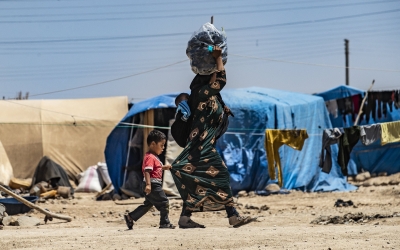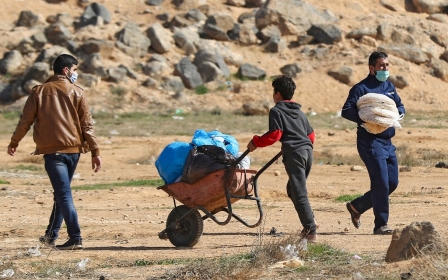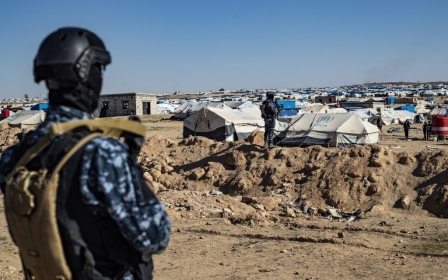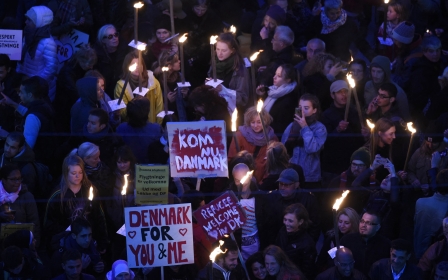Syria: Two children die every week at camp for Islamic State families, NGO says
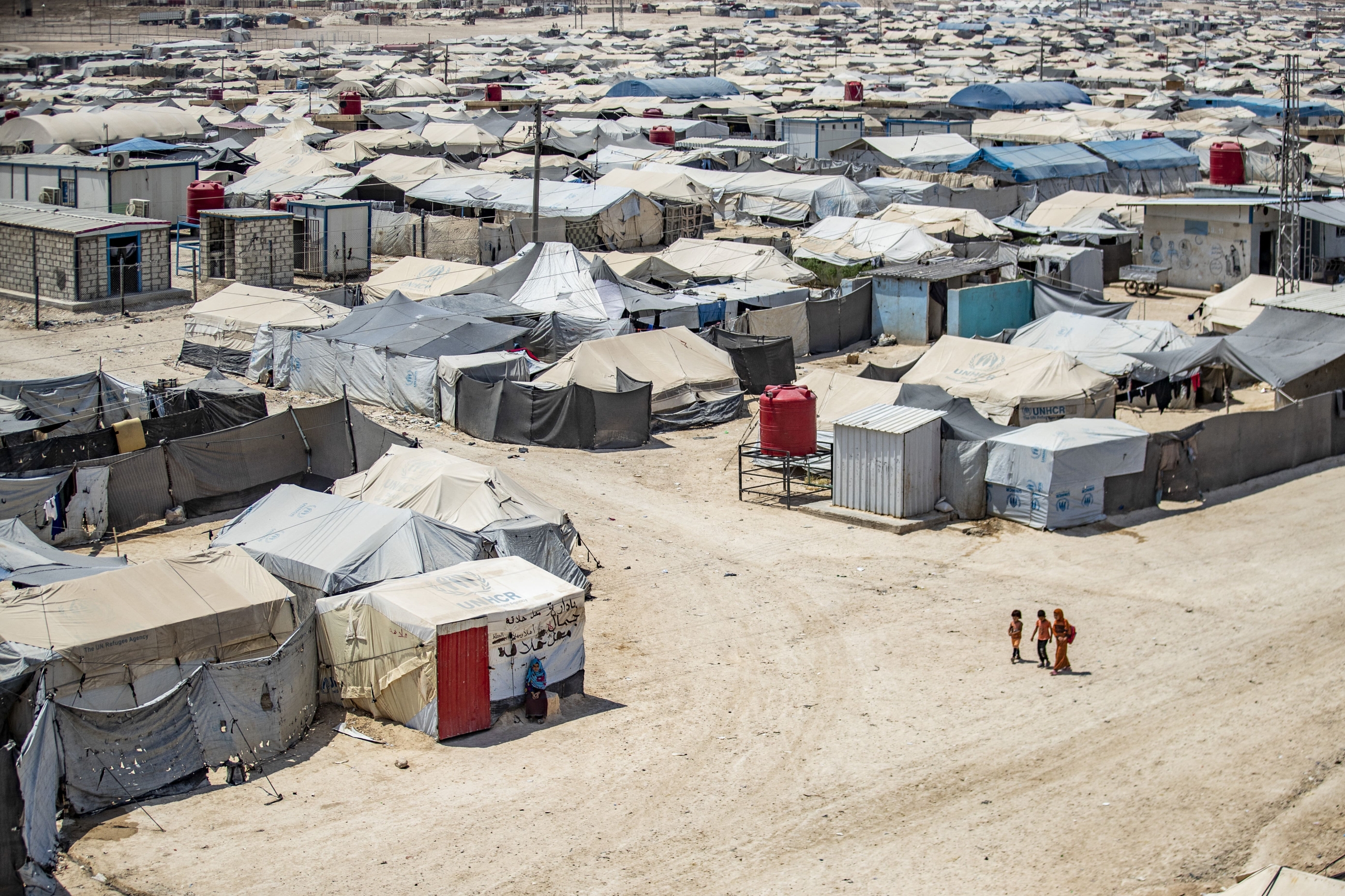
An average of two children die every week at a camp in northeast Syria for suspected family members of Islamic State (IS) militants, Save the Children said.
The charity said in a report released on Thursday that tens of thousands of children were "wasting away" at al-Hol and Roj camps, and it was "more urgent than ever" that foreign governments repatriate their citizens.
"The scale of the violence, hardship, deprivation and trauma that children living in these camps experience every day cannot be overstated," the report said.
Save the Children said a total of 40,000 children from 60 different countries were living in dire conditions at al-Hol and Roj camps.
Controlled by Kurdish authorities, they have previously warned that al-Hol camp in particular is emerging as an extremist powder keg.
New MEE newsletter: Jerusalem Dispatch
Sign up to get the latest insights and analysis on Israel-Palestine, alongside Turkey Unpacked and other MEE newsletters
While the camp was set up to house the families of individuals detained for suspected ties to IS, it also houses refugees who fled fighting and IS occupation.
According to Save the Children, 163 people died at al-Hol camp between January and mid-August this year, with 62 of them children. It added that 73 people had been murdered, including three children who were shot to death - a total average of two children dying every week.
The top US military chief in the Middle East, General Kenneth McKenzie, had previously warned that children "in particular" were being radicalised by IS sympathisers within the camp and warned that "unless we find a way to repatriate them and reintegrate them and deradicalise them, we're giving ourselves the gift of fighters five to seven years down the road".
Save the Children spoke with some of the children trapped inside the camp behind barbed wire.
"I cannot endure this life anymore. We do nothing but wait," said one 11-year-old Lebanese girl who was interviewed in May and was reportedly killed during a failed escape attempt in a water truck.
The charity urged governments, including EU member states, to repatriate their citizens, stating "many of the world's richest countries have failed to bring home the majority of their children".
"What we are seeing here is governments simply abandoning children who are first and foremost victims of conflict," said Sonia Khush, director of Save the Children's Syria response.
Khush said 83 percent of repatriation operations so far had been to Uzbekistan, Kosovo, Kazakhstan, and Russia.
While 1,163 children have been repatriated since 2017, only 14 repatriations had taken place this year, the report said.
"Save the Children demands that all governments with nationals in the camps take responsibility and bring children and their families home," the charity said.
"Every day that foreign children and their families are failed by their governments, every day they are denied the opportunity to return to their home, denied the specialised services they so desperately need and denied the right to live in safety and recover from their experiences is a day too many."
This article is available in French on Middle East Eye French edition.
Middle East Eye delivers independent and unrivalled coverage and analysis of the Middle East, North Africa and beyond. To learn more about republishing this content and the associated fees, please fill out this form. More about MEE can be found here.


